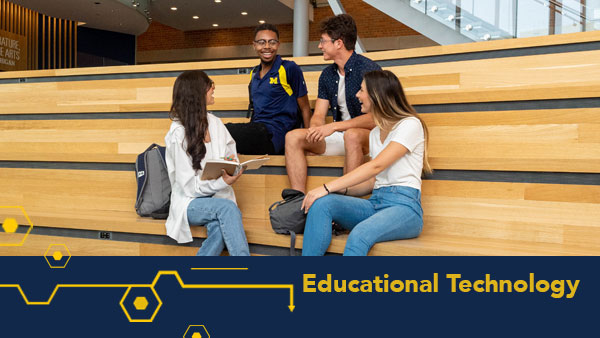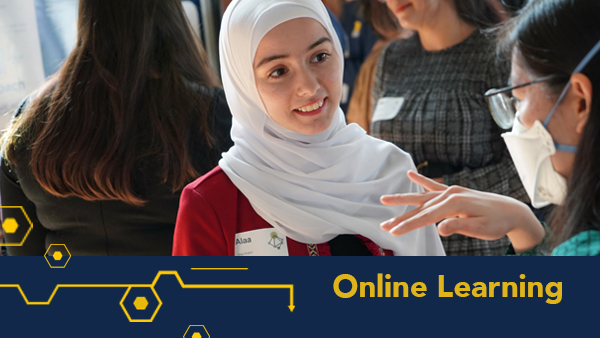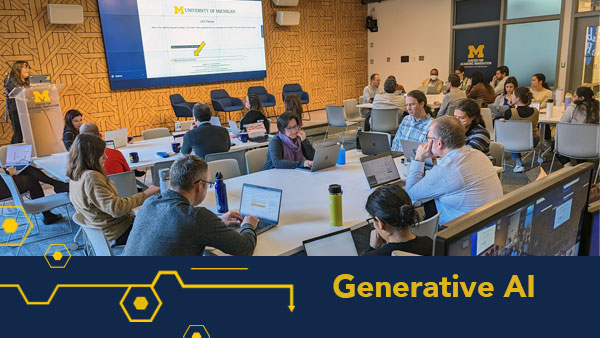Rachel Niemer, Director of the Gameful Learning Lab
@rkniemer
Back in June, I wrote about the (then upcoming) Gameful Course Design Summer Institute. Our goals for the event, held on July 24 and 25, were to introduce a new group of instructors, from within and beyond the University of Michigan, to the ideas of gameful course design. Attendees included K-12 teachers, higher ed instructional designers and educational technologists, and professors from a range of institutions. We hoped that giving people dedicated time, away from the requirements of everyday work, would open up space for them to imagine and create new learning environments and experiences. Beyond giving individuals a new toolkit for course design, we hoped to seed a community of adventurers: educators who want to experiment with new approaches to assessing student learning and blaze new trails to engage students.
The event began with welcoming remarks from James Hilton, Vice Provost of Academic Innovation and Dean of Libraries, and a dynamic keynote from Barry Fishman, Arthur F. Thurnau Professor in the U-M School of Information and School of Education. Fishman’s talk explored ten principles of game design that make games excellent and engaging learning environments, and posed the question, “What might your classes look like if you applied these principles to the design of your courses?”
I followed the keynote with a mini-workshop to guide instructors through a set of exercises to articulate their teaching philosophies, identify gameful design principles that align with those philosophies, and employing practices they can use in their course design and teaching to embody those philosophies and principles.
Evan Straub, Learning Experience Designer in the Gameful Learning Lab, and emcee/creator of the Institute, led participants into the heart of the event: working through a design process for their courses. She provided a set of worksheets to help participants visually sketch out possible assessment structures and to guide them through developing a model for the point structures in their new courses. We capped off Day 1 with a scavenger hunt around central campus and downtown Ann Arbor, followed by an opportunity to socialize at a casual reception.
“Inspiration” was the focus of Day 2. We launched the day with a panel of U-M community members who have had a range of gameful experiences. Panel participants were:
- Pamela Bogart, Lecturer and Digital Initiatives Coordinator, English Language Institute, College of Literature, Science, and the Arts
- Monica Chen, BSI ‘17 and User Experience Intern, Digital Innovation Greenhouse
- Jandi Kelly, Doctoral Student, Center for the Study of Higher and Professional Education, School of Education
- Mika LaVaque-Manty, Arthur F. Thurnau Professor, College of Literature, Science, and the Arts and Director of LSA Honors Program
Much of the rest of the day was collaborative working time so participants could share their designs with one another, get feedback and refine those designs.
Without a doubt one of the highlights of the day was the keynote address from Paul Darvasi, Educator, Writer & Game Designer, Royal St. George’s College/York University. Paul has explored many intersections of games and education, which he writes about at www.ludiclearning.org. During the keynote he talked about his work developing pervasive games for learning. In his classrooms, students can choose to be immersed in a role-playing game to learn about literature or technology. It was fascinating!
We are already preparing for next year’s event. In addition to the workshops, we hope to add a conference which will include presentations from some of this year’s attendees sharing the success and challenges of their newly designed gameful courses. Save the date: July 23-25 — we hope to see you there!


